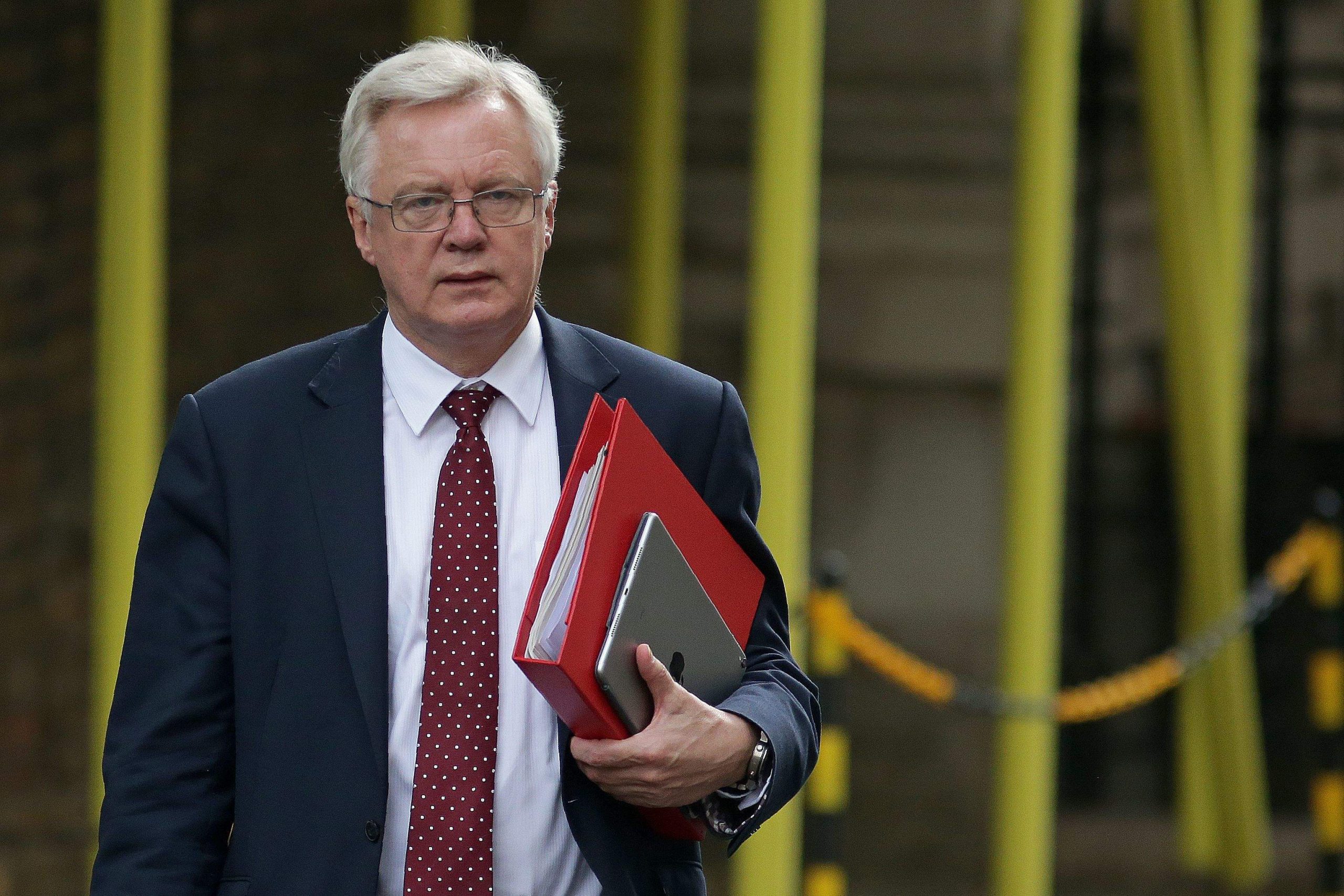
A couple of Saturdays ago, I was having dinner with my wife at Padella (which serves the best pasta in London) when the phone rang. It was an irate David Davis. “You’re reporting that a friend of mine has said Philip May wants Theresa to quit. It’s not true. I don’t even know Philip May.” I calmly explained that I wasn’t accusing him and I had his friend on tape. “Who was it?” he asked me. I wasn’t saying. “Well, it’s not bloody helpful,” the Brexit Secretary said before hanging up.
The following day, I woke up to watch Philip Hammond explain to the BBC’s Andrew Marr why his cabinet colleagues had leaked me details of how the Chancellor had branded public-sector workers as “overpaid”. “I don’t know who [Tim Shipman’s] sources are,” he said, after inaccurately suggesting that I was being fed information as part of some Brexiteer conspiracy to discredit the cabinet’s leading Remainer.
On Monday, I did an interview with Eddie Mair in the back of a beer garden in Ireland, where I’m playing cricket. In reality, the leaks had much more to do with colleagues irritated at Hammond’s sometimes grating behaviour. Word reaches me that he regards it all as very unhelpful. It seems odd after 16 years in political journalism to have to say this, but we’re not here to be helpful. It might make sense if our politicians gave us less to write about. Over the past three years, they have delighted us enough.
Back for seconds
Voter fatigue is a recognised problem. No one talks about journalist fatigue. We all hope that Theresa May rejuvenates on her Swiss walk (perhaps regenerating into Jodie Whittaker). Thanks to the decision she took when she last went walking, I’m facing the obliteration of another summer holiday writing a second political tome covering the period since my Brexit book, All Out War, up to the general election. What looked at one stage like the boring second album is now a rip-roaring tale of hubris and nemesis. When I asked for title suggestions on Twitter, there were plenty of votes for “Mayhem” and “Mayday”. The most imaginative was: “The Snarling Duds of May”. Sadly, it’s too long for my publisher.
Catching the big fish
The new-found attention from writing books is a double-edged sword. To my delight, then embarrassment, Andrew Marr referred to me twice as “the doyen” of the print lobby. “We keep trying to stop him,” Marr’s editor, the redoubtable Rob Burley, confided at a rival magazine’s summer party. The following week, Marr said: “The biggest fish in the pool, if only physically, is Tim Shipman…” I got a text from a special adviser friend asking: “Are you paying him?” I pointed out that Britain’s best-known political interviewer had just called me a fat bastard live on national television.
New blood
I make my debut on BBC2’s Newsnight alongside Ash Sarkar of Novara Media, one of the new websites that cheerlead for Jeremy Corbyn. She is nerveless and fluent in her mid-twenties, when I was a tongue-tied naif. People who get the Corbyn phenomenon are rightly getting more airtime. Off the air, she tells me that she’s a “libertarian anarchist” and then asks me where I live. “Are you going to smash it up?” I ask nervously. She smiles. Ash’s main concern is to paint the town red in the Saturday-night sense. A Labour MP draws attention to her Twitter biog, which concludes: “Walks like a supermodel. Fucks like a champion. Luxury communism now!” Bravo. I think…
Brexit gamble
I was greatly cheered by the induction in the Poker Hall of Fame of the late Dave “Devilfish” Ulliott, the player who did the most to create the TV and online poker boom in Britain. Westminster has a few useful card sharps – Paul Stephenson, formerly of Vote Leave, among them – but I don’t know any politicians who play. By contrast, the US presidents Harry Truman, Dwight Eisenhower, Lyndon Johnson and Richard Nixon were all accomplished poker players.
When I worked in the US, I interviewed a member of Barack Obama’s poker circle when he was a state senator in Chicago. The cautious, composed and occasionally bold player he described was the mirror image of the politician we came to know. His Republican rival in 2008, John McCain, preferred the chaotic gambling of the craps table and his erratic campaign reflected that. Too many of the current cabinet seem to be dice men. What we wouldn’t give for Devilfish running the Brexit negotiations.
Blundering through
Anyone who has ever dealt with McCain would have been saddened by the news that he is suffering from brain cancer, but his resilience almost makes you feel sorry for the tumour. McCain is undoubtedly the most media-friendly politician I have ever met. When I travelled on his plane in 2008, he took every question from the foreign press pack and made us feel welcome. Through him, I also met Steve Duprey, the former boss of the New Hampshire Republicans. He was fond of explaining Duprey’s first law: “In politics, before considering malevolence, always assume incompetence.” I have had much cause to remind myself of that over the past three years.
Paranoid android
If you are looking for a summer read, I recommend Jonathan Allen’s and Amie Parnes’s Shattered, a great insider account of Hillary Clinton’s disastrous 2016 presidential election effort. It shows how a flawed candidate with little ability to connect with the public presided over a paranoid regime of advisers engaged in Shakespearean bloodletting that led to them coming a cropper when fighting a charismatic populist. On second thoughts, you could always wait to read my second book this autumn.
Tim Shipman is the political editor of the Sunday Times. “All Out War” is now available in paperback (William Collins)
This article appears in the 26 Jul 2017 issue of the New Statesman, Summer double issue






